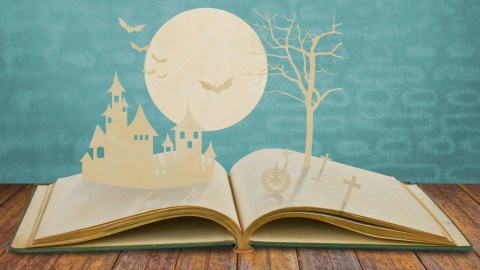We Tell Stories to Become Immortal

There’s a lot of different techniques that you can employ when using a story. You can frighten people. You can surprise people. You can provoke people. You can make people sad. But those are all techniques. They’re not outcomes.
When I think about the types of stories that I like to tell now, one thing they usually have in common is that somewhere inside of them is what I call a teachable moment and these are things that each of us experience in our individual lives, as we’re living them, whether it’s like a little bit of dialogue that you overhear in a restaurant or the way the sunlight hits something on the wall in a street with people walking by or any of these other things that often you’re the only one to see or you’re the only one to hear. And there’s a lot of stuff like this in life.
If you don’t communicate those things, they won’t get known by anyone else, and that’s okay. I’m not one of these people who believes that we need to preserve everything, like preserving all memories so that we can just reconstruct humans in the future or something. I think actually death and forgetting is a very important part of life, and it’s actually what allows there to be more space for new life to come along and it provides the raw material for the new life. So I think that cycle is incredibly important to respect.
But that said, I think there are some things that are worth communicating and that are worth preserving. And one thing that a story can do is it can take one of these insights that you discover, one of these teachable moments, and it can package it up in a little narrative unit that can then go traveling around into the world, moving from mouth to mouth and mind to mind and can actually outlive you.
You can tell stories and then you can die, ultimately, and your stories can continue to have an effect on other people.
So stories are way that we can translate and pass down wisdom from one generation to many, many subsequent generations. And I think that’s their true power. They resist time and they transform and they transmute, but ultimately the core teaching is always there, even though the language changes a little bit along the way. So I think every great story has that in common, which is that there’s a nugget inside of it that’s some kind of teachable moment or some kind of teachable unit that’s worth preserving.
In Their Own Words is recorded in Big Think’s studio.
Image courtesy of Shutterstock





